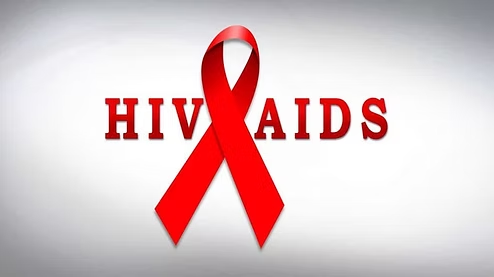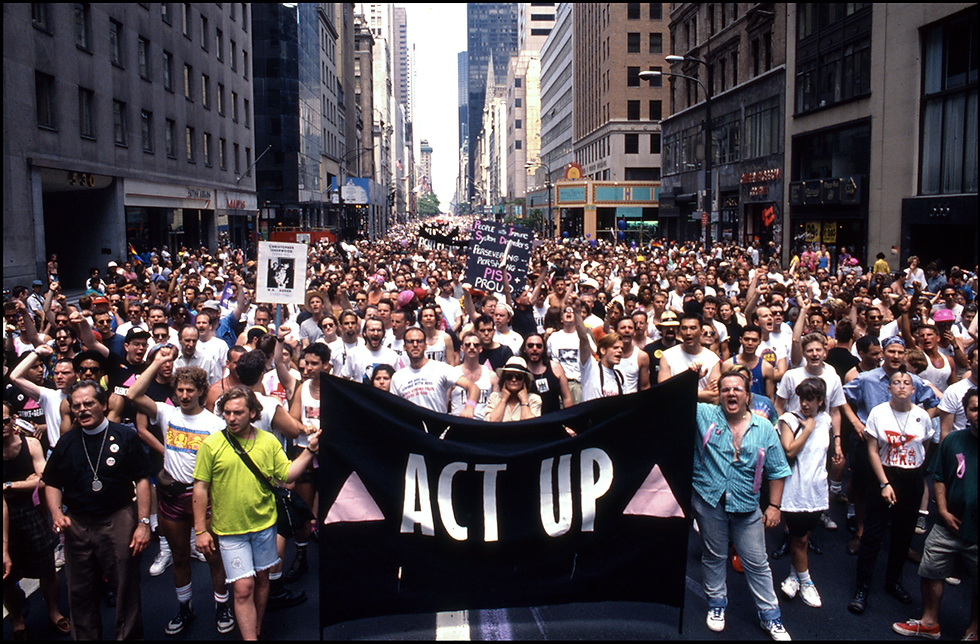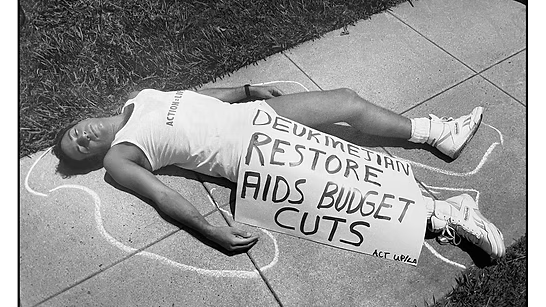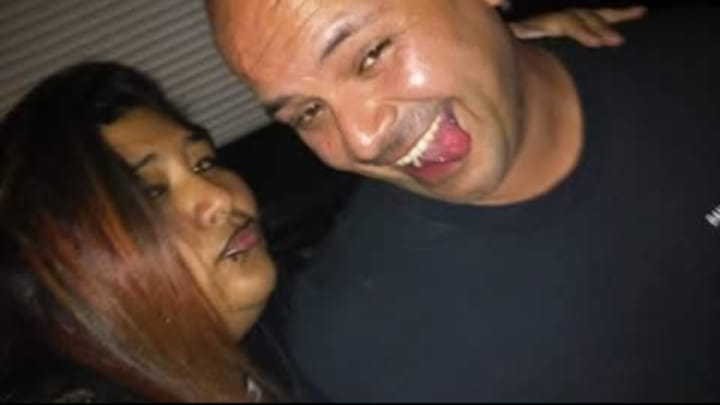Beloved heroes we remember and miss.
- jessetorres358

- Sep 2, 2024
- 6 min read
Updated: Jul 26, 2025

The History of the Aids Pandemic
In the 1980s epidemic, the significant presence of the gay community led local medical professionals to quickly observe and address the patterns of reported illnesses.
Community activists and local government policies, which were at times supportive and at other times harmful or ineffective, worked to counteract the widespread fear and panic about the epidemic.
The initial phase of the AIDS epidemic in New York City started in 1981 with rumors of a "gay plague". Since AIDS initially appeared among groups viewed as marginal by much of the mainstream population, such as prostitutes, drug users, and men who had sex with men, the early reactions to the disease were inconsistent and lacked sufficient funding. The federal government's response contributed to a delay in broader acknowledgment of the problem's severity.
Condoms!

Even in 1986, the Reagan administration sought to prevent panic by stating that AIDS mainly impacted gay men and intravenous drug users.
In the early stages, New Yorkers lacked adequate information about the disease, including its transmission, who could be affected, and its implications. Initially, it was identified as a rare type of cancer known as Kaposi's Sarcoma.
The gay community addressed the epidemic through four stages: establishing community-based support and advocacy groups like the Gay Men's Health Crisis (GMHC); creating broader advocacy, lobbying, and funding organizations such as the American Foundation for AIDS Research; forming efficient lobbying groups in Washington; and the emergence of militant activism, highlighted by the radical strategies of Act Up (AIDS Coalition To Unleash Power), which have been chronicled in over 180 interviews by the ACTUP Oral History Project.

In approximately 1985, both public and private organizations-initiated programs aimed at educating the public. They organized informational meetings and public forums, distributed literature, and launched outreach initiatives, including a hotline for counseling and referrals.
Founded in 1982, the HTLV-III Hotline started offering counseling services to individuals with AIDS. The hotline team collaborated with social service providers, the New York State AIDS Institute, the New York Blood Center, and the Hemophilia Foundation to coordinate resources for post-test counseling programs.
By June 10, 1985, the GMHC established a contract to provide extensive education to high-risk gay men and youth, enabling them to offer counseling and expand their offices in the Bronx and Brooklyn, thereby increasing access to their services. This initiative cost around $83,000 in the 1986 fiscal year.

Arts and creative organizations played a prominent role in community efforts related to AIDS. Some of these groups emerged from pre-existing organizations. In 1981, the New York City government was unprepared to handle this health crisis, as the city was still recovering from the financial crisis of the 1970s when Mayor Ed Koch assumed office.
The immediate trigger of the financial crisis was the city's reliance on costly short-term borrowing to address its budget shortfalls in the early 1970s. At the onset of the epidemic, there was an absence of financial support from both federal and city governments. Jonathan M. Soffer contends that "the ultimate responsibility for the city's devastation in the 1970s rests with Washington and the anti-urban administrations of the time."
Gerald Ford, Jimmy Carter and Ronald Regan.
The importance of testing and why it is crucial
I lost a friend who had AIDS, and his best friend Josie granted me permission to share his story for educational purposes.
I met Albert in elementary school, and he remained a wonderful person throughout high school. However, we lost touch after high school. I frequently asked others about him. Then, one day, a man approached me at a gay club called 10th Avenue in McAllen.
The man mentioned that I appeared frightened. Upon realizing it was Albert, I immediately embraced him with a huge hug. We reconnected and kept in touch from that point on. Then, one day, he opened up to me and revealed that he was HIV positive.
You can imagine my shock. I had heard whispers about Albert being HIV positive, but they were just that—rumors. At that moment, I was afraid to hug him or even be near him. I didn't know how to respond. Then I saw him start to cry, and he said I was behaving like everyone else who knew about him.
I needed some time to align my thoughts properly. So, I told him we were still friends, but how did he interpret that? That's when the real conversation started.
During his time in San Antonio, he met someone and hoped for a long-term relationship. Unfortunately, his boyfriend of two years was dishonest and never told Albert about his status. This deception left Albert heartbroken, prompting him to end the relationship. When Albert went for a check-up, he discovered that he was HIV positive. The devastation led Albert to attempt suicide but was unsuccessful.
Therefore, when he decided to tell his family, he realized that none of them wanted to be near him. Albert was jumping from one house to another. The only person who stayed with Albert was his best friend, Josie; she never left his side for anything.
A family might become afraid of a person status and decide to keep their distance. But that is never the answer to do that.
During Albert's final days, he told me that his skin was turning yellow, and his friends advised him to get it checked. So, he did, and that's when he discovered he had cancer. The doctor informed him that chemotherapy would not be effective that would only kill him faster, so Albert had to just let nature take its course.
Nevertheless, his dearest friend Josie remained with him until the very end. Josie's deep love for Albert led her to experience depression. Thankfully, she is now managing his loss somewhat better.
Albert aimed to leave a meaningful mark on the world. He was an exceptional individual who left us much too early. If he is watching over us now, he should know that he inspired a lot in countless ways.

The only way to really Know if you have HIV!
From my perspective, anyone engaging in sexual activity with another person should prioritize self-care. Given the billions of people globally, not everyone is transparent about their situation.
The only way to confirm if you have HIV is through testing. Although symptoms might appear, they are not a dependable sign of infection. Some individuals might not show any symptoms whatsoever. Thus, if you think you might be at risk, it's important to get tested, even if you don't have any typical symptoms of an infection.
It's essential for everyone to be informed about sex and AIDS. Although my only exposure to such experiences is through my friend Albert, and I wouldn’t want to have them myself, it's important. Parents should make the effort to discuss these topics with their children, ensuring they feel ready to approach you if they need help.
Such discussions might appear inappropriate and embarrassing to some children or adults. Nevertheless, it's crucial to teach your children the importance of understanding this specific illness. Support is accessible not only to the LGBTQ community but to all communities. The focus should be on educating everyone, rather than blaming who might contract it.
Families, if necessary, educate your children about condoms. Fathers, ensure your children receive a proper education. Avoid simply congratulating your son because he got laid; this encourages rather than educates. Those who enjoy socializing should use a condom if they intend to have intimate encounters and feel at ease getting close. It's better to be safe now than to regret it later. If you have any questions or concerns, please contact your doctor.
Let Albert Solis Legacy live forever!

The Conclusion
If you intend to engage in sexual activity, always prioritize safe sex. AIDS is a serious concern, as are all sexually transmitted diseases. Consistently be truthful about your status, regardless of what it is.
Love all and accept.
We do love you friend may you be at peace.
Story By Britney J Torres





Great Post